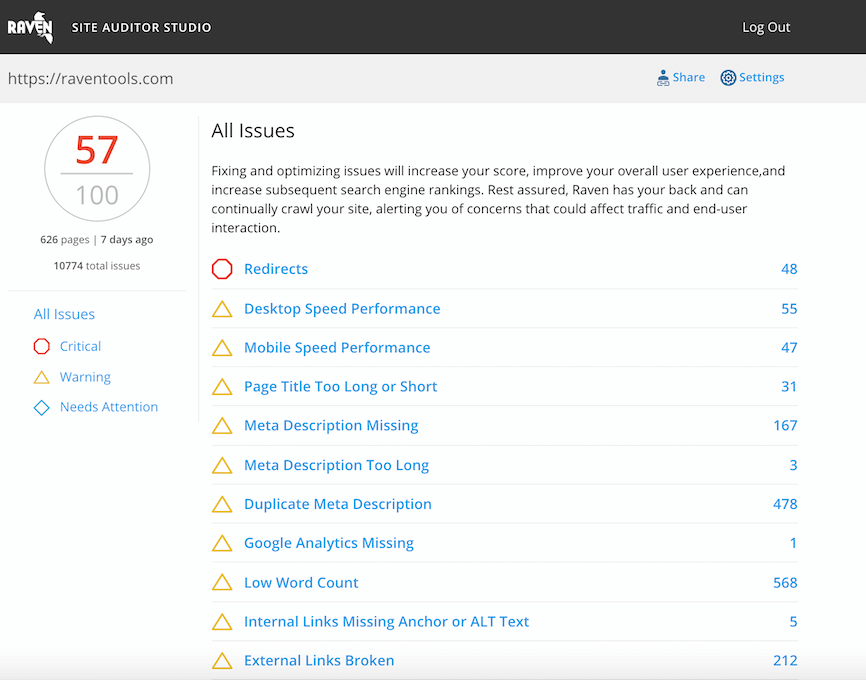Recently, another blog post “outing” a website for poor SEO practices went viral. Not only was a well-funded startup left looking bad, but its founders made excuses for their tactics, outing six other competitors in the process.
Outing has always been somewhat of a hot-button issue in the SEO world. If you spend time digging into backlinks at all, you’ll very often run across shoddy, sketchy and downright spammy inbound links. As much as the Google PR machine likes to trick people into thinking link building or SEO is dead, crap links can still push around the SERPs.
When it comes to outing, people who practice it usually fall into two different categories:
- People who want to out their closest competitors
Frustrated from being stuck behind a competitor who is violating Google’s Guidelines, webmasters take matters into their own hands. Typically, they write a blog post about it or contact a journalist. - White-hat SEO evangelists
While they might be well-intentioned, popular SEO figureheads have made a habit of pointing out sites that are doing shady link practices on Twitter or in blog posts.
No matter the intentions behind it, outing is a dangerous road for SEOs to go down.
Outing doesn’t help anybody. If you are trying to nuke a competitor’s site, you are operating under the illusion that outing them will help your site perform better. If you find yourself in a position where outing a competitor is the best use of your time, there are probably bigger issues at hand. Is your time really best spent analyzing your competitor’s marketing tactics and flagging anything that you feel is unethical?
Widespread outing creates a world where negative SEO and low-quality links are more powerful than good links. A couple of Fiverr gigs and a free trial of a link explorer tool makes you more than qualified to take down any site you please. SEOs could probably make more money penalizing sites in the SERPs than improving them.
The true cost of outing
The most dangerous part of outing is that we’re so laser-focused on what is happening online and with Google that we forget that SEO outing has real world consequences.
You aren’t just aiming to push a site down in the SERPs. Take a look at a few sites hit by Panda or Penguin and the impact on their overall business. A website is but one public-facing aspect of a real company run by real people who employ real people.
Allowing competitors to push and challenge us to do better is one thing, but attempting to destroy a company’s search presence has much more dire consequences. Killing a couple of pages in the SERPs might mean killing a couple of jobs.
In the gray moral area that surrounds outing, the key question for me has always been: Is the real villain somebody who uses questionable marketing tactics or somebody who tries to put people out of business for using questionable marketing tactics?
Glass houses, gray hats
Not to mention, if you’ve been in the SEO game for more than a couple of years, chances are you have some dodgy links in your backlink profile. If you don’t, you probably haven’t been too successful.
Directory submissions, blog comments and paid links worked like magic long before infographics and “great content.” Google’s fluctuating stance on different types of “link building” means that a tactic that was acceptable a few years ago can be considered unnatural in 2014.
If you want to out people, be prepared for someone to comb through your own backlink profile and pick out any links that Google could possibly identify as poor quality. These include:
- Directory submissions to deep pages
- Followed links from infographics
- Links with commercial anchor text
- Keyword-rich text links in press releases
Put almost any link under a microscope and you won’t see black or white. It’ll be a shade of gray. Google could expand its guidelines twofold and people would still disagree over whether or not a link is natural. Trying to determine what is ethical or natural is a very subjective process. It always will be.
Most webmasters with dodgy inbound links haven’t the faintest idea that they exist. I’ve spoken with dozens of website owners the past year who have been hit by penalties or algorithm updates because of unnatural links built by their SEO vendors that they never even knew about. When you live in the SEO echo chamber, it’s easy to forget that most business owners have never even heard of Penguin and don’t know how Google works. They trust and pay others to take care of that for them.
Those business owners are the people that outing really hurts. It kills jobs, empowers negative SEO and helps nobody. Think about the lasting impact of what you’re doing before you publicly shame somebody for poor SEO practices.

Analyze over 20 different technical SEO issues and create to-do lists for your team while sending error reports to your client.




And you just gave this dude his 453rd referring domain! Some crap, but damn that’s a lot of money links.
Trevin, nofollow that dude! No one likes a snitch.
Done.
haha this story still cracks me up
Hi Jacob!
Historically, being a jagoff is one of the most effective ways to build links at scale 😀
Sadly, being an asshole is one of the best ways to get attention in any arena.
Nonetheless, thanks for the thought-provoking post. There’s definitely a diminishing ROI on policing our competitors – even when they’re up to no good.
Classic ^^ Thanks Trevin, this reply just started my day with a laugh.
You hit the nail on the head with this little paragraph… almost.
TRUE: Widespread outing creates a world where negative SEO and low-quality links are more powerful than good links.
FALSE: A couple of Fiverr gigs and a free trial of a link explorer tool makes you more than qualified to take down any site you please.
TRUE: SEOs could probably make more money penalizing sites in the SERPs than improving them.
Hi Bob!
I’d be curious to see how effective the Fiverr negative SEO gigs are. Obviously you can’t take down a well-known brand but would 4-5 Fiverr blasts impact your average ecommerce store?
Has anybody ever tested this?
Yes. It has been tested on my site. About a year ago, a competitor or two, along with some malcontents who didn’t like how I called them out on some BS about the potential for negative SEO started fiverring the heck out of my site. There were also scraped copies, lots of hacking attempts, and miscellaneous other crap. When it started, I had maybe 200 or so domains linking to the site, with a handful of “questionable” links from things like directories. It was not exactly a big-time authority site like Moz or anything. Then it started getting a few thousand links per day, from as many as 200 domains per day. Guess what happened to the rankings and traffic – NOTHING! If a site already has a history of link spam, then it might work sometimes. But I have still not seen a single case of negative SEO actually working against a clean site. All those anecdotes you see posted on forums usually end up being from people who already screwed themselves up before any link blast happened.
It is still going on, too. Some goofball came by the site to spam a petition to get Google to stop the allegedly widespread problem of negative SEO, and I caught him lying about his link profile, and what was actually happening. He didn’t like that, and promptly went to fiverr and probably his own affiliate marketing spam software to prove me wrong.
Long story short, the profile of the Fiverr guy he hired turned up in the server logs and I contacted him. He promptly turned over the goods.
Long convoluted details are here. The comments on that post are where the real silliness happened.
I have no problem whatsoever with outing someone like that. He was lying to try to rip off more people and continue selling his scraping, spinning and spamming software, and probably lying about a neg SEO attack to get some links. He did this believing that it would have an impact on my livelihood and that of those I employ. Someone like that deserves public humiliation at minimum, IMO.
Within the SEO community, I think outing some of the more aggressively fraudulent SEOs is not a bad idea either. I do a lot of site audits. A huge number of those clients have come from very well known SEO providers who should be trustworthy. Many are either outsourcing to cheap writers and bulk link builders, or else they have no clue how to do what they sell. Some are flat-out lying to their clients. This hurts all of us by magnifying the mistrust that SEO has always had to deal with. So the sooner those types can be pushed out of the picture, the better.
Very interesting. I tend to believe that a solid foundation can withstand a lot of “abuse,” but I wonder what the thresholds are for that… How much good karma do you need to sabotage-proof your site against negative SEO?
99% of Fiverr gigs are SO bad that they aren’t even good enough for Neg SEO.
I’m a bit on the fence on this one personally and I suppose it comes down to what they’re are actually doing which is against G policies. There is a line right?
Say for example you’re doing everything right and Google is still so dumb that it hasn’t worked out that someone else in your vertical is happily spamming away making loads of cash. You promised your client months and months ago that they would get their comeuppance and nothing happens.
As an SEO you have to protect your revenue stream above all else in the cold reality of day. If I’m honest I’ve only ever grassed up one site over the years and that came down to one simple reason – if I didn’t I’d loose my client! If someone chooses to take the risk with spam, then they have to be prepared to take the consequences IMHO.
Yeah — client work can definitely murky the waters. In that case you are pretty much stuck following their wishes.
I’m not convinced that it would actually a client long term, but that is another issue altogether based on the situation.
Thanks for reading!